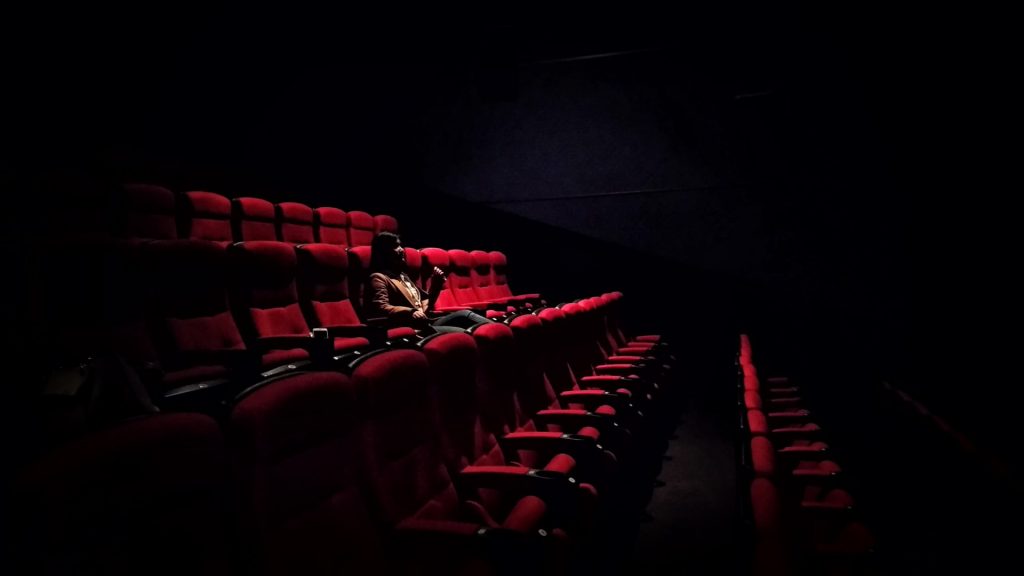Rhiannon White writes that we cannot be constrained by our traditional understanding of theatre.
The future of theatre is here. It’s in our empty buildings, our streets, our parks and our houses. It’s about things that matter to us, the stories that represent us and the things we want to talk about – on our terms. We are the message and the medium. We are the artists and the audiences. It starts with us.
The dominant cultural sector is struggling to breathe, although a recent sigh of relief comes in the form of a £1.57 billion rescue package from Westminster (with the Welsh Government deciding on £53 million for the sector in Wales) to save the UK’s cultural ‘crown jewels’.
The Covid-19 pandemic has unmasked deep fractures in society and the arts have not been spared, exposing elitism, racism and classism. At the same time the cultural sector faces this (hopefully realising that change is possible and we can change things right now), the same communities that buy the lottery tickets that fund the sector continue to get by even though livelihoods are threatened, even though further austerity is on the cards, even though where they live often lacks the offer of opportunity. And this is the hypocrisy of it all. If you don’t fit the dominant narrative of ‘culture’ then you’re not included.
In 2010 I took a circus to Gaza a year after the brutal Operation Cast Lead. We toured independently, creating a small DIY show that we took to community centres, kindergartens, streets and gardens of houses.
People were hungry to escape from the reality they found themselves in, to feel relief, see their children smile and laugh and to reimagine what the land could be used for other than death. The feeling of hope was palpable – even if it was just for minutes.
It taught me the value of culture and the need that we have as humans both to entertain and to be entertained. This was a first-hand experience of the power of play and imagination and of how transformational it can be for people and communities. As it states in the UN Declaration of Human Rights: we all have a right to culture.
My work with Common Wealth has taught me that theatre at its best can give people agency, confidence and power. It can support people in realising their potential and give them the courage to exercise democratic rights.
“As our theatres lie empty I wonder what would happen if they become spaces which could house us, for all we need, in the absence of libraries and youth centres.”
Culture at its best emerges when it needs to too, reflecting back to us the world we live in. The best culture grows in the margins and especially grows in tough times, when artists need to speak.
As we emerge from this pandemic, with the resurgence of the Black Lives Matter movement and this period of deep reflection, what strikes me is the need for change. Could this be a time for radical imagination? For transformative ways for culture to be reimagined?
For Common Wealth, we are focusing on how we co-create and co-curate with our community. How do we find ways to reinvent making theatre, collectively, in empty spaces we want to reclaim. It’ll involve working with a community sounding board, developing artist and bringing world-class theatre to the council estates of east Cardiff. On the community’s terms.
As our communities emerge from lockdown, some will be grieving, others will be frustrated, alone or holding onto a fear of the future. Let’s not forget that the backdrop of this is years and years of austerity. I wonder what people will need? How arts and culture can best be of use to people and what artists and art forms might emerge from these times.
As our theatres lie empty I wonder what would happen if they become spaces which could house us, for all we need, in the absence of libraries and youth centres. What could it look like? What would we build? How could we build it?
Syniadau uchelgeisiol, awdurdodol a mentrus.
Ymunwch â ni i gyfrannu at wneud Cymru gwell.
What if we reclaimed the words ‘theatre’ and ‘culture’ and we had the resources to build our own spaces? We could let our imaginations run riot, build spaces of storytelling which encompass everything from street dancing to sculpture. It could be what we wanted it to be.
What if our communities realised the power they have, and that the ‘crown jewels’ were already there – the crown jewels were the kids making grime music in their bedrooms, or the makeshift bingo caller running a weekly session from their socially isolated streets.
And that’s not forgetting the crown jewels that exist already, organisations such as Jukebox Collective and Valleys Kids, who are responding, building and growing incredible talent and shows, quietly cracking on and doing what is needed.
What if this was the moment for us to be brave, all of us and reimagine what all of this could be, collectively? After all it is public money.
We could share the £53 million by shifting power into the hands of people, artists, communities, nurturing new artists to take their place to tell the stories they need to tell. What if it started with us.
All articles published on the welsh agenda are subject to IWA’s disclaimer.
Photo by Karen Zhao on Unsplash




